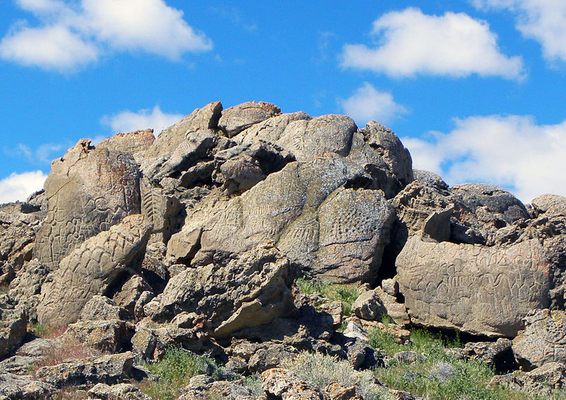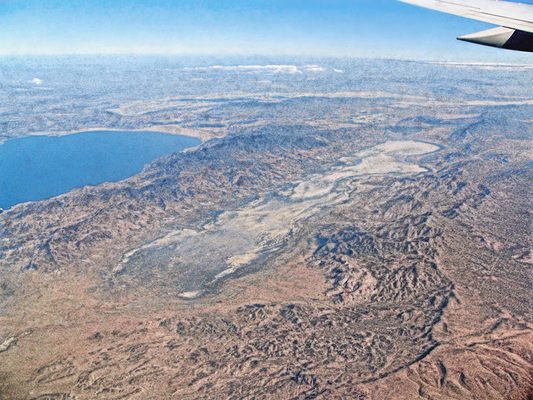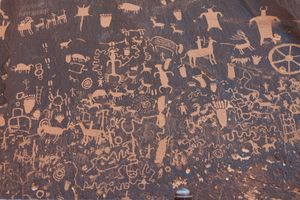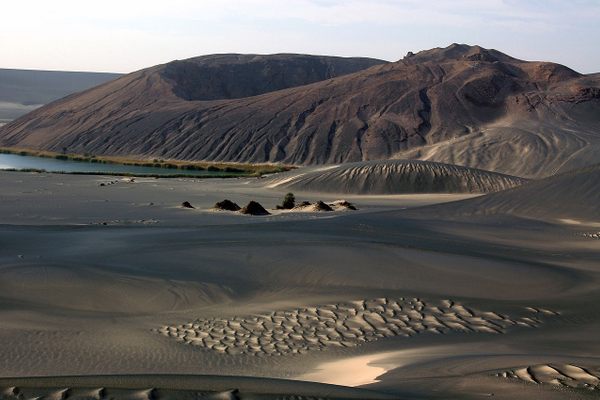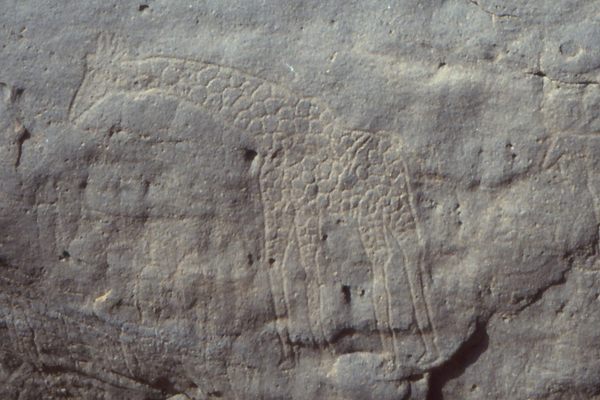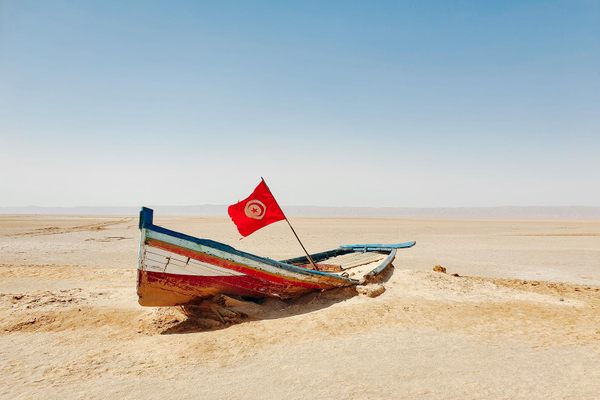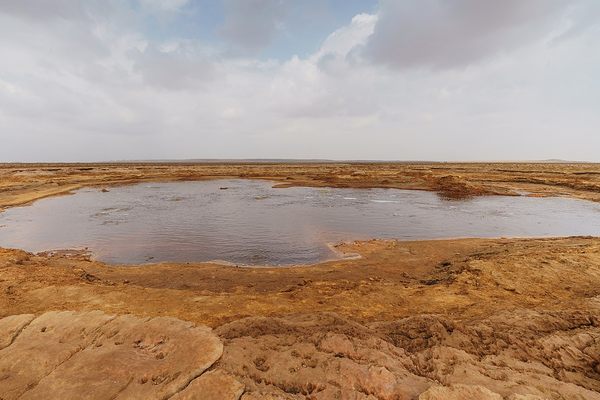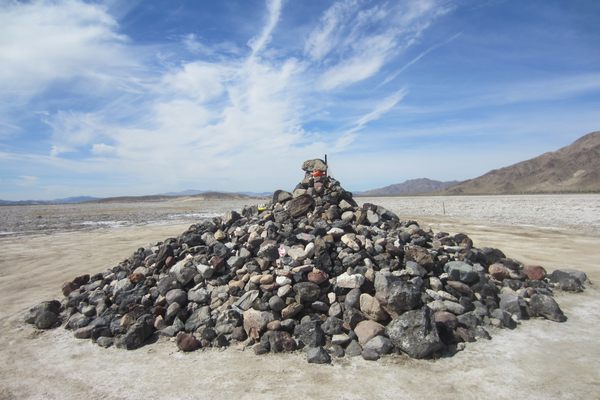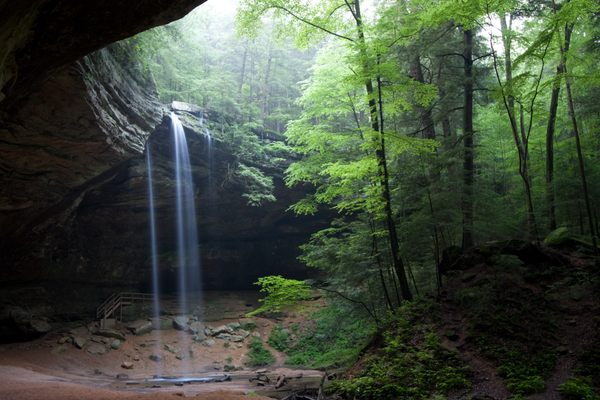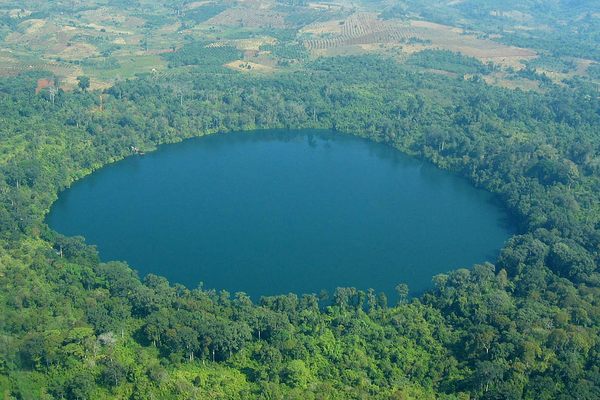About
Although Winnemucca Lake has been dry since the 1930s, it was once a vital part of desert survival. The rare oasis was a beacon to the native tribes of the area. The lake drew everyone from the Paiute to the famed 19th-century explorer John C. Frémont. But a cluster of carvings shows that people have been drawn to the area for much, much longer.
At the western end of the lake, in the Pyramid Lake Indian Reservation, is a group of rocks adorned with ancient petroglyphs. The site was first described by Frances and Robert E. Connect in 1992. Carbon-dating of the lake bed was taken to conclude the time when the lake levels were low enough to access the rocks.
Using the test information, the carvings were estimated to have been made somewhere between 14,800 and 13,200 years ago or between 11,300 and 10,500 years ago, as those are the periods when the water levels were low. The latter date range is most likely, as it correlates with other archaeological finds in the area. Regardless of which date range the petroglyphs were made in, they're currently the oldest known carvings in North America.
The carvings range from simple lines and swirls to more complex patterns representing trees and flowers. Although the meanings of the petroglyphs are unknown, it is clear that they served an important purpose to the people who made them.
Related Tags
Know Before You Go
Get permission from the Pyramid Lake Indian Reservation before visiting the site. Make sure to respect the petroglyphs and leave no trace.
Published
August 21, 2019

